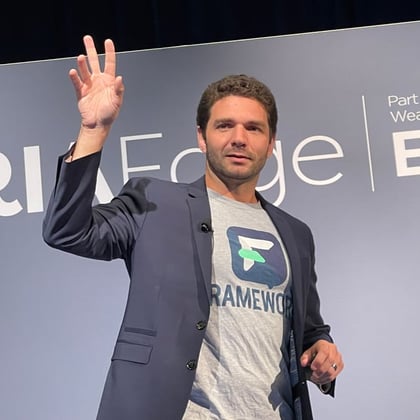What You Need to Know
- In the past, employers wanted financial advisors to support the retirement plan committee and help the company protect itself from fiduciary liability.
- Now, the worlds of wealth management and retirement plans are quickly merging, asserts Carson Group's Jamie Hopkins.
- The new environment presents an opportunity for advisory shops with the right talent, systems and skillsets in place.
The rapidly evolving dynamic between retirement plan sponsors, participants and financial planning professionals presents one of the most important competitive trends affecting the work of wealth management professionals today.
In years past, employers tended to be much more “protective” of their employees and their retirement plan accounts, viewing the appropriate job of financial advisors as providing support and guidance to the retirement plan committee and helping the company protect itself from fiduciary liability.
Today, things have changed significantly, says Jamie Hopkins, managing partner of wealth solutions for Carson Group. From the biggest national employers to the smallest privately owned businesses, leadership teams are coming to view the work of wealth management professionals as essential to the retirement outcomes of their workers.
As Hopkins observes in the latest episode of Carson Group’s Framework podcast, this evolution presents a huge opportunity for advisory shops with the talent, systems and skillsets to work across the traditional wealth-retirement plan divide.
It also explains why Carson is among the many firms making a concerted effort to bolster its capabilities on the retirement plan services side via mergers and acquisitions.
Case in point: the firm’s June acquisition of Northwest Capital Management, a major advisory shop with a long history of specializing in retirement plan services as well as wealth management.
The deal, which brought along some $5 billion in assets under advisement, represented Carson Group’s largest acquisition to date, and it came some six months after Carson revealed its partnership with Vestwell, through which the firm is creating the Carson Complete 401(k).
Brent Petty, president of advisory services at Northwest Capital Management, joined Hopkins on the recent podcast, and the pair explored the deepening connection between retirement planning and wealth management.
Ultimately, Hopkins and Petty argue, wealth management shops that ignore the growing link between these two sides of the advisory business risk losing clients and assets to firms with a more holistic range of services that speak to the needs of business leaders and their workers.
Why Focus on Retirement Plans?
Early on in the discussion, Petty shared a personal anecdote to explain his firm’s longstanding focus on retirement plans.
“A lot of people don’t know this about me, but right out of college in the mid-1990s, I started my career as a police officer in Phoenix,” Petty recalls. “In going through the academy and getting my training, I was very interested in the fact that a lot of officers were always talking about struggling with retirement.”
Petty says many officers were highly dedicated to their jobs and they never really paused to think too seriously about retirement until they were older. They assumed a pension benefit and Social Security would be enough to maintain their lifestyle in retirement, but oftentimes, it wasn’t.
“And you know what that means? They were having poor outcomes when it came to the retirement transition and retirement security,” Petty says. “Being exposed to that dynamic, for whatever reason, really struck a nerve with me.”









 July 27, 2023 at 02:21 PM
July 27, 2023 at 02:21 PM











